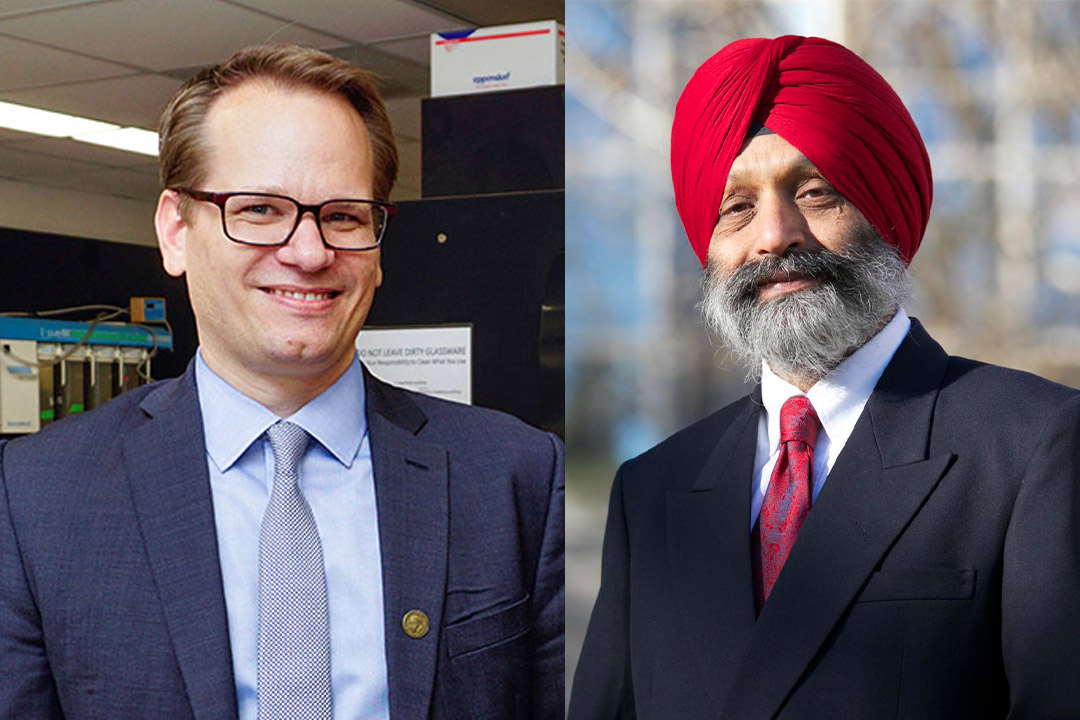
USask team visits University of Bonn to cement research, student mobility partnerships
SASKATOON – A University of Saskatchewan (USask) delegation begins a three-day visit Tuesday to the University of Bonn in Germany for strategic discussions and to sign a memorandum of understanding (MOU) on forging research partnerships and facilitating student mobility between the two institutions.
“Collaboration and engagement with strong research institutions such as the University of Bonn is important as USask takes steps toward achieving its goal of being the university the world needs,” said USask Vice-President Research Baljit Singh, who co-organized the trip with Dr. Markus Brinkmann (PhD), USask’s special adviser on strategic partnerships with Germany.
“Partnerships with institutions with whom we share common values and a commitment to excellence in research and academics enables USask to help solve emerging complex global problems equitably, and also train our students and post-doctoral fellows to meet the needs of tomorrow.”
The trip to Bonn follows a visit to Germany in November by Singh, Brinkmann, USask President Peter Stoicheff, and VIDO Director and CEO Volker Gerdts. They met with University of Bonn Rector Dr. Michael Hoch (PhD), who highlighted what his university has to offer. Hoch also heads the German equivalent of Canada’s U15 group of research universities now led by Stoicheff.
“We are very pleased about the visit of the delegation from the University of Saskatchewan, which is one of the best universities in Canada,” said Hoch.
“Both our universities dedicate their excellent research to the major scientific, technological and societal challenges, such as the development towards sustainable futures. On the basis of the new MOU, we look forward to exploring these fields and possible areas of collaboration.”
Members of the USask delegation are: Singh; Dr. Steven Webb (PhD), CEO of the Global Institute for Food Security (GIFS); Dr. Trina Racine (PhD), director of vaccine development at the Vaccine and Infectious Disease Organization (VIDO); Dr. Steve Rayan (PhD), director of the Centre for Quantum Topology and its Applications (quanTA); Brinkmann, who will represent the areas of toxicology, sustainability, and water security.
“Bonn is a fantastic future partner because it has excellent thematic fits with USask’s Signature Areas of Research. For example, Bonn is the only big German university that focuses on agriculture research, and it also has a very strong focus on social sciences, arts and humanities programs,” said Brinkmann.
“It’s great to have identified a potential partner that could help us bridge those connections between USask and the German research landscape,” said Brinkmann. “So, this is really a nice connection because they’re thought leaders in this space.”
Another factor that makes the University of Bonn unique and a good match for USask, Brinkmann said, is that it’s the only university to hold six German Clusters of Excellence, comparable to Canada First Research Excellence Fund (CFREF) awards. USask is the only university in Canada to hold two CFREFs.
In addition to meeting with Hoch and vice-rectors for international affairs and research on this visit, delegates will engage in discussions with their Bonn equivalents in specific areas of expertise. There will be tours of major Bonn facilities and historic buildings and surroundings that extend back to the university’s founding in 1818.
-30-
For media inquiries, contact:
Victoria Dinh
USask Media Relations
306-966-5487
victoria.dinh@usask.ca

